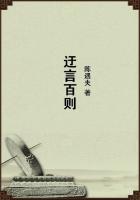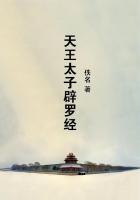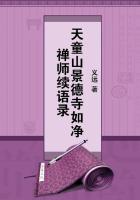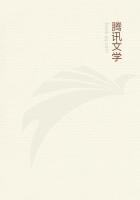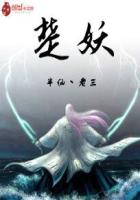What has the power of producing sound is what has the power of setting in movement a single mass of air which is continuous from the impinging body up to the organ of hearing. The organ of hearing is physically united with air, and because it is in air, the air inside is moved concurrently with the air outside. Hence animals do not hear with all parts of their bodies, nor do all parts admit of the entrance of air; for even the part which can be moved and can sound has not air everywhere in it. Air in itself is, owing to its friability, quite soundless; only when its dissipation is prevented is its movement sound. The air in the ear is built into a chamber just to prevent this dissipating movement, in order that the animal may accurately apprehend all varieties of the movements of the air outside. That is why we hear also in water, viz. because the water cannot get into the air chamber or even, owing to the spirals, into the outer ear. If this does happen, hearing ceases, as it also does if the tympanic membrane is damaged, just as sight ceases if the membrane covering the pupil is damaged. It is also a test of deafness whether the ear does or does not reverberate like a horn; the air inside the ear has always a movement of its own, but the sound we hear is always the sounding of something else, not of the organ itself. That is why we say that we hear with what is empty and echoes, viz. because what we hear with is a chamber which contains a bounded mass of air.
Which is it that 'sounds', the striking body or the struck? Is not the answer 'it is both, but each in a different way'? Sound is a movement of what can rebound from a smooth surface when struck against it. As we have explained' not everything sounds when it strikes or is struck, e.g. if one needle is struck against another, neither emits any sound. In order, therefore, that sound may be generated, what is struck must be smooth, to enable the air to rebound and be shaken off from it in one piece.
The distinctions between different sounding bodies show themselves only in actual sound; as without the help of light colours remain invisible, so without the help of actual sound the distinctions between acute and grave sounds remain inaudible. Acute and grave are here metaphors, transferred from their proper sphere, viz. that of touch, where they mean respectively (a) what moves the sense much in a short time, (b) what moves the sense little in a long time. Not that what is sharp really moves fast, and what is grave, slowly, but that the difference in the qualities of the one and the other movement is due to their respective speeds. There seems to be a sort of parallelism between what is acute or grave to hearing and what is sharp or blunt to touch; what is sharp as it were stabs, while what is blunt pushes, the one producing its effect in a short, the other in a long time, so that the one is quick, the other slow.
Let the foregoing suffice as an analysis of sound. Voice is a kind of sound characteristic of what has soul in it; nothing that is without soul utters voice, it being only by a metaphor that we speak of the voice of the flute or the lyre or generally of what (being without soul) possesses the power of producing a succession of notes which differ in length and pitch and timbre. The metaphor is based on the fact that all these differences are found also in voice. Many animals are voiceless, e.g. all non-sanuineous animals and among sanguineous animals fish. This is just what we should expect, since voice is a certain movement of air. The fish, like those in the Achelous, which are said to have voice, really make the sounds with their gills or some similar organ. Voice is the sound made by an animal, and that with a special organ. As we saw, everything that makes a sound does so by the impact of something (a) against something else, (b) across a space, (c) filled with air; hence it is only to be expected that no animals utter voice except those which take in air. Once air is inbreathed, Nature uses it for two different purposes, as the tongue is used both for tasting and for articulating; in that case of the two functions tasting is necessary for the animal's existence (hence it is found more widely distributed), while articulate speech is a luxury subserving its possessor's well-being; similarly in the former case Nature employs the breath both as an indispensable means to the regulation of the inner temperature of the living body and also as the matter of articulate voice, in the interests of its possessor's well-being. Why its former use is indispensable must be discussed elsewhere.
The organ of respiration is the windpipe, and the organ to which this is related as means to end is the lungs. The latter is the part of the body by which the temperature of land animals is raised above that of all others. But what primarily requires the air drawn in by respiration is not only this but the region surrounding the heart.
That is why when animals breathe the air must penetrate inwards.
Voice then is the impact of the inbreathed air against the 'windpipe', and the agent that produces the impact is the soul resident in these parts of the body. Not every sound, as we said, made by an animal is voice (even with the tongue we may merely make a sound which is not voice, or without the tongue as in coughing); what produces the impact must have soul in it and must be accompanied by an act of imagination, for voice is a sound with a meaning, and is not merely the result of any impact of the breath as in coughing; in voice the breath in the windpipe is used as an instrument to knock with against the walls of the windpipe. This is confirmed by our inability to speak when we are breathing either out or in-we can only do so by holding our breath; we make the movements with the breath so checked. It is clear also why fish are voiceless; they have no windpipe. And they have no windpipe because they do not breathe or take in air. Why they do not is a question belonging to another inquiry.

